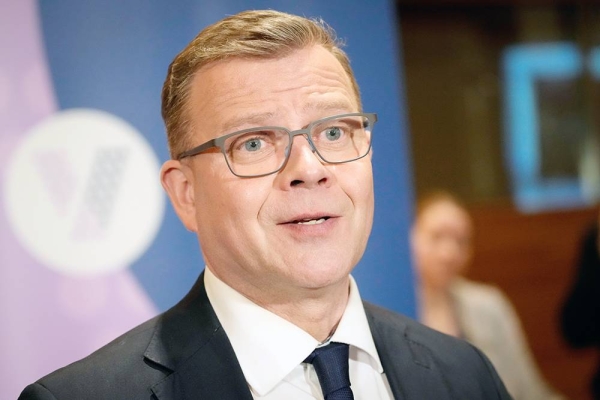
People see the start of a new year as an opportunity for a fresh beginning and a chance to make positive changes in their lives. While New Year resolutions can be used as a motivating and constructive way to set goals, it is important to be realistic, and have a plan for implementation, to increase the likelihood of success.
These resolutions often center on key aspects of well-being, personal growth, and fulfillment. In this exploration, let us delve into some of the most common New Year resolutions and discuss practical strategies to achieve them.
Without a doubt, health tops the list of resolutions for many people around the world — whether it is shedding a few kilograms, adopting a healthier diet, or committing to regular exercise.
One strategy to achieve this goal is to take a holistic approach by focusing on overall well-being rather than fixating solely on the number on the scale. This requires incorporating mindfulness practices, adequate sleep, and stress management into our routines. One should also set achievable fitness and dietary goals. Many health experts believe that gradual changes are more likely to be sustainable rather than drastic, short-term measures. Joining fitness classes, running groups, or engaging in online communities to foster a sense of accountability and shared motivation, are important as well.
The other issue that often ranks high among New Year resolutions is creating financial stability — the desire to save more, reduce debt, and cultivate sound budgeting habits. Nevertheless, transforming fiscal aspirations into reality requires thoughtful planning and commitment. According to many financial advisers, this requires developing a detailed budget to track income, expenses, and savings goals. Prioritizing building an emergency fund to cushion against unforeseen financial challenges is critical as well.
It is important to point out that even small, consistent contributions can make a significant impact over time. And one should invest wisely. If it is possible, attempt to explore investment opportunities to make your money work for you. One can also seek guidance from financial advisers in order to align investments with long-term goals.
Another New Year resolution is linked to personal development and learning. Many people aspire to acquire new skills, pursue education, or foster personal or spiritual growth. It is worth noting that the journey of lifelong learning is not confined to academic institutions; it is a pursuit that spans careers and personal interests.
But one should have clear objectives for personal growth such as defining specific skills or knowledge areas where one wants to develop or improve. This clarity will guide one’s learning journey. This can be followed by dedicating regular time slots to learning and personal growth. It does not have to be hours each day — consistent, focused intervals can yield significant results — and can be achieved by embracing various learning mediums, from online courses and workshops to local classes or mentorship opportunities.
The ambition to progress in one’s career, strike a better work-life balance, or explore new professional horizons frequently finds expression in New Year resolutions. One can clearly outline one’s short- and long-term career goals, and then it is important to break them down into manageable steps to foster a sense of accomplishment.
For continuous progress and enhancement, identifying and acquiring skills relevant to one’s field is key. In an era of global connectedness, the evolving nature of industries demands adaptability and a commitment to ongoing learning, cultivating professional connections, attending industry events, and engaging in networking opportunities to broaden one’s career prospects.
New Year resolutions serve as powerful motivators for personal growth and positive change.
Dr. Majid Rafizadeh
Another important New Year resolution for many people is to strengthen and work on relationships. As we all know, the resolve to fortify relationships, spend quality time with loved ones, and enhance communication skills underscores the importance of human connections in our lives. When it comes to relationships, many experts believe that prioritizing quality time is vital.
Quality often trumps quantity in fostering strong bonds. This includes dedicated, meaningful interactions with family and friends, developing effective ways to communicate, working on active listening, expressing thoughts and feelings openly, and encouraging dialogue. Engaging in activities or experiences together can ensure shared memories that create lasting connections. In other words, effective communication forms the bedrock of healthy relationships.
As a New Year resolution, many individuals also pledge to manage stress, practice mindfulness, and prioritize psychological well-being by acknowledging the significance of mental health. But according to many psychologists, one should first identify stressors and then create clear boundaries to manage stress effectively through various methods including mindfulness practices, meditation and deep-breathing exercises.
It is also crucial to establish healthy boundaries, that is, striking a balance between work and personal life. Seeking support when needed by reaching out to friends, family, or mental health professionals when one encounters challenges is important as well. One should view seeking help as a sign of strength, not weakness.
There are also resolutions to break unhealthy habits including quitting smoking, reducing alcohol intake, or overcoming other detrimental behaviors that reflect a commitment to personal well-being and longevity. One can begin by understanding the situations or emotions that trigger unhealthy habits — as this awareness is a critical step toward breaking the cycle. One method is to consider a phased approach to quitting or reducing unhealthy habits. Then, one should acknowledge and celebrate milestones, no matter how small. Positive reinforcement enhances motivation and resilience. Seeking professional support, such as counseling or support groups, can also be immensely beneficial.
In a nutshell, New Year resolutions serve as powerful motivators for personal growth and positive change. Whether it is adopting healthier habits, improving finances, personal and spiritual growth, or enhancing relationships, success often hinges on setting realistic goals, developing sustainable routines, and seeking support when needed. As we stand on the cusp of a new year and as many embark on their journeys toward self-improvement, the key lies in embracing the process, learning from setbacks, and celebrating the progress made along the way.
May your new year bring not only resolutions, but also the resilience and determination to turn them into lasting achievements.
• Dr. Majid Rafizadeh is a Harvard-educated Iranian-American political scientist. X: @Dr_Rafizadeh
Disclaimer: Views expressed by writers in this section are their own and do not necessarily reflect Arab News" point of view












